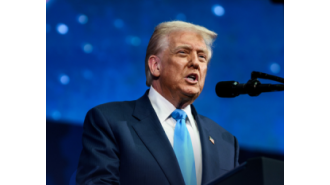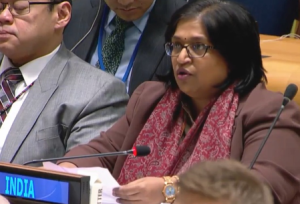India and the United Kingdom will restart discussions on a potential trade deal starting on February 24th.
India and UK will restart talks for a free trade agreement after 8 months, with UK Secretary of State for Business and Trade visiting New Delhi on February 24.

New Delhi: After a long pause of more than eight months, India and the UK are about to resume their negotiations for a proposed free trade agreement. According to an official, the talks will kick off on February 24th, with UK's Secretary of State for Business and Trade, Jonathan Reynolds, arriving in India for the meeting. He is scheduled to hold a bilateral meeting with Piyush Goyal, the Minister of Commerce and Industry.
These negotiations between India and the UK for a free trade agreement were initially launched in January 2022. Since then, a total of 13 rounds of negotiations have taken place, with the last one being held in December 2023. However, the 14th round, which began in January 2024, was put on hold by the UK due to their general elections. Now, the talks will resume from where they left off, with the aim of bridging any existing gaps and finalizing the trade deal as soon as possible.
The main goal of this agreement is to boost trade and investments between the two countries. This can be achieved by either eliminating or significantly reducing customs duties on goods traded between them. Additionally, the agreement will also make it easier for both countries to promote trade in services and bilateral investments.
On one hand, the Indian industry is looking for greater access to the UK market for its skilled professionals in sectors such as IT and healthcare. They are also seeking market access for various goods at zero customs duty. On the other hand, the UK is pushing for a significant reduction in import duties on products like scotch whiskey, electric vehicles, lamb meat, chocolates, and certain confectionery items. They also want more opportunities for UK services in the Indian market, specifically in areas like telecommunications, legal and financial services, including banking and insurance.
The talks for this agreement are expected to receive a boost as the Finance Minister, Nirmala Sitharaman, has proposed to raise the foreign investment limit to 100% in the insurance sector. This is a part of the new-generation financial sector reforms presented in the Union Budget for 2025-26. Under this, the limit for foreign direct investment in the insurance sector will be increased from 74% to 100%. Apart from this, the two countries are also negotiating a bilateral investment treaty.
The agreement consists of 26 chapters covering goods, services, investments, and intellectual property rights. The bilateral trade between India and the UK has been steadily increasing, reaching USD 21.34 billion in 2023-24 from USD 20.36 billion in 2022-23. The average duty on goods imported from India into the UK is 4.2%.
According to economic think tank GTRI, the trade agreement will benefit a wide range of products, including textiles, apparel, footwear, carpets, cars, marine products, grapes, and mangoes. These products currently face low to moderate tariffs in the UK. For instance, the duties on yarn and fabric are 4%, while tariffs on shirts, trousers, women's dresses, and bed linen range from 10% to 12%. Similarly, handbags and trunk cases attract 8% tariffs, and levies on footwear vary from 4% to 16%.
The think tank also predicts that UK exporters will see immediate benefits once India eliminates high tariffs on most British products. For example, the tariff on cars is currently 100%, and on Scotch whisky and wines, it is 150%. The simple average tariff in India on goods imported from the UK is 14.6%. During the fiscal year 2022-23, the UK exported USD 2.7 billion worth of precious metals and USD 374 million worth of Scotch and other alcohol to India.
The United Kingdom is the sixth largest investor in India, with a total FDI of USD 35.3 billion during April 2000 and September 2024. These negotiations for a free trade agreement are expected to further strengthen the trade and investment ties between the two countries.
6 Views










